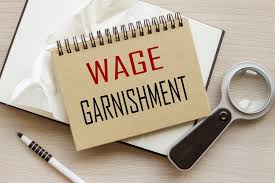Understanding Wage Garnishment: A Path to Financial Stability
Wage garnishment can be a serious financial setback, but it is important to recognize that it is not the end of your financial stability. When your wages are garnished, it means that a portion of your paycheck is being withheld by your employer to repay a debt as mandated by a court order or government agency. This situation often causes stress and uncertainty, but with proper understanding and strategic action, you can regain control over your finances and work towards rebuilding your credit and financial standing.
Why Does Wage Garnishment Happen?
Before addressing wage garnishment, it is crucial to understand why it happened. Wage garnishment usually occurs when a debtor has failed to meet the payment obligations on debts such as unpaid taxes, student loans, child support, or other court-ordered payments. Creditors may file a lawsuit against the debtor and obtain a court order permitting the garnishment of wages. Additionally, some debts like federal student loans and certain taxes have statutory provisions allowing for wage garnishment without a court order.
Understanding the root cause of garnishment will help you develop an effective plan to resolve it. You should carefully review all communication from creditors and ensure the legitimacy of the garnishment order.
Communicating with Creditors and Employers
Once you are aware of the wage garnishment, it is essential to communicate promptly and clearly with your creditors or employer. Contact your creditor to obtain detailed information about the debt and verify that the garnishment amount is accurate and complies with legal limits.
Employers are responsible for withholding the garnished amount from your paycheck and forwarding it to the creditor or court. It is also important to understand your employer’s role and ensure they are applying the garnishment correctly. Keep documentation of all communications as this may be helpful if discrepancies arise.
Legal Protections and Limits on Garnishment
Federal and state laws impose limits on how much of your wages can be garnished. Under the federal Consumer Credit Protection Act (CCPA), garnishment cannot exceed 25% of disposable earnings or the amount by which weekly disposable earnings exceed 30 times the federal minimum wage, whichever is less. Some states have more stringent limits or additional protections.
If the garnishment amount exceeds legal limits, you have the right to challenge it by filing a claim with the court or consulting with a legal advisor. Understanding these protections is vital to safeguarding your income and preventing excessive financial hardship.
Options to Address Wage Garnishment
Once you have a clear understanding of your situation and have communicated with creditors, consider the following options to address wage garnishment:
- Negotiation: Reach out to creditors for possible settlement or payment plan adjustments that may reduce or eliminate garnishment.
- Hardship Adjustments: Many creditors offer hardship plans for individuals experiencing financial difficulties, which may reduce payment amounts or temporarily suspend garnishment.
- Bankruptcy: In certain situations, filing for bankruptcy can stop garnishment and allow for debt restructuring.
- Legal Challenges: If the garnishment is unlawful or incorrect, challenge it in court with the help of an attorney.
Rebuilding Your Credit and Financial Health
Once the debt leading to wage garnishment is satisfied, legally reduced, or otherwise resolved, it is important to focus on rebuilding your credit and financial health. This process requires patience, discipline, and proactive financial management.
Start by obtaining small secured loans or credit-building products that report your payments to credit bureaus. Making consistent, on-time payments will help improve your credit score gradually. Additionally, create and adhere to a strict budget to control expenses and avoid accumulating new debt.
Consider consolidating debts or working with credit counseling services for additional support in managing your financial recovery. Education on responsible credit use is essential to long-term financial stability.
Seeking Professional Legal Guidance
Navigating wage garnishment laws and debt resolution can be complex. Consulting with a qualified legal professional can provide clarity about your rights and options. Legal advisors from Legal Marketplace CONSULTANT specialize in assisting individuals facing wage garnishment, helping negotiate with creditors, and guiding clients through court procedures when necessary.
If you require proper legal help, do not hesitate to reach out through communications in bio or send a private message. Early intervention often leads to better outcomes and greater protection of your income.
Preventing Future Wage Garnishment
Prevention is always better than cure. To avoid future wage garnishments, it is important to take proactive financial measures, such as:
- Regularly monitoring your credit report for accuracy.
- Maintaining an emergency savings fund.
- Handling debts proactively through negotiation or consolidation before they escalate.
- Seeking financial advice and planning from professionals.
- Understanding your legal rights concerning debt collection and garnishment.
Understanding the Impact of Wage Garnishment on Your Finances
Wage garnishment can significantly impact your monthly budget and financial goals. The withheld portion of your paycheck reduces available funds for living expenses, which may cause hardship if not managed carefully.
It is important to assess your financial situation comprehensively and make necessary adjustments. This may include prioritizing essential expenses, negotiating alternative payment arrangements, or temporarily reducing discretionary spending.
The Role of Courts and Legal Systems in Wage Garnishment
Courts play a central role in wage garnishment proceedings by issuing orders based on creditor petitions and debtor rights. The legal system ensures that garnishments comply with statutory requirements, protecting debtors from unlawful practices.
Understanding court procedures and deadlines is crucial if you intend to contest a garnishment or apply for exemption. Legal representation can be invaluable in navigating these processes efficiently.
Final Thoughts on Wage Garnishment
Wage garnishment is a challenging financial experience, but it is surmountable with the right knowledge, planning, and support. By understanding why it happened, communicating effectively with creditors and employers, exploring legal options, and focusing on rebuilding your financial foundation, you can regain control over your income and credit health.
At Legal Marketplace CONSULTANT, we are dedicated to assisting clients through legal challenges related to wage garnishment. Reach out to us for professional guidance and support tailored to your unique circumstances.
Wage garnishment does not have to define your financial future. With informed actions, legal support, and disciplined financial management, you can overcome this obstacle and rebuild a stable and secure financial life. Protecting your income and understanding your rights are essential first steps. Remember, professional help is available to guide you every step of the way.
Legal Marketplace CONSULTANT is a company specializing in comprehensive legal support for individuals facing wage garnishment and other financial legal issues. Our team includes experienced attorneys, legal consultants, and financial advisors committed to helping you regain financial control with tailored legal solutions.































